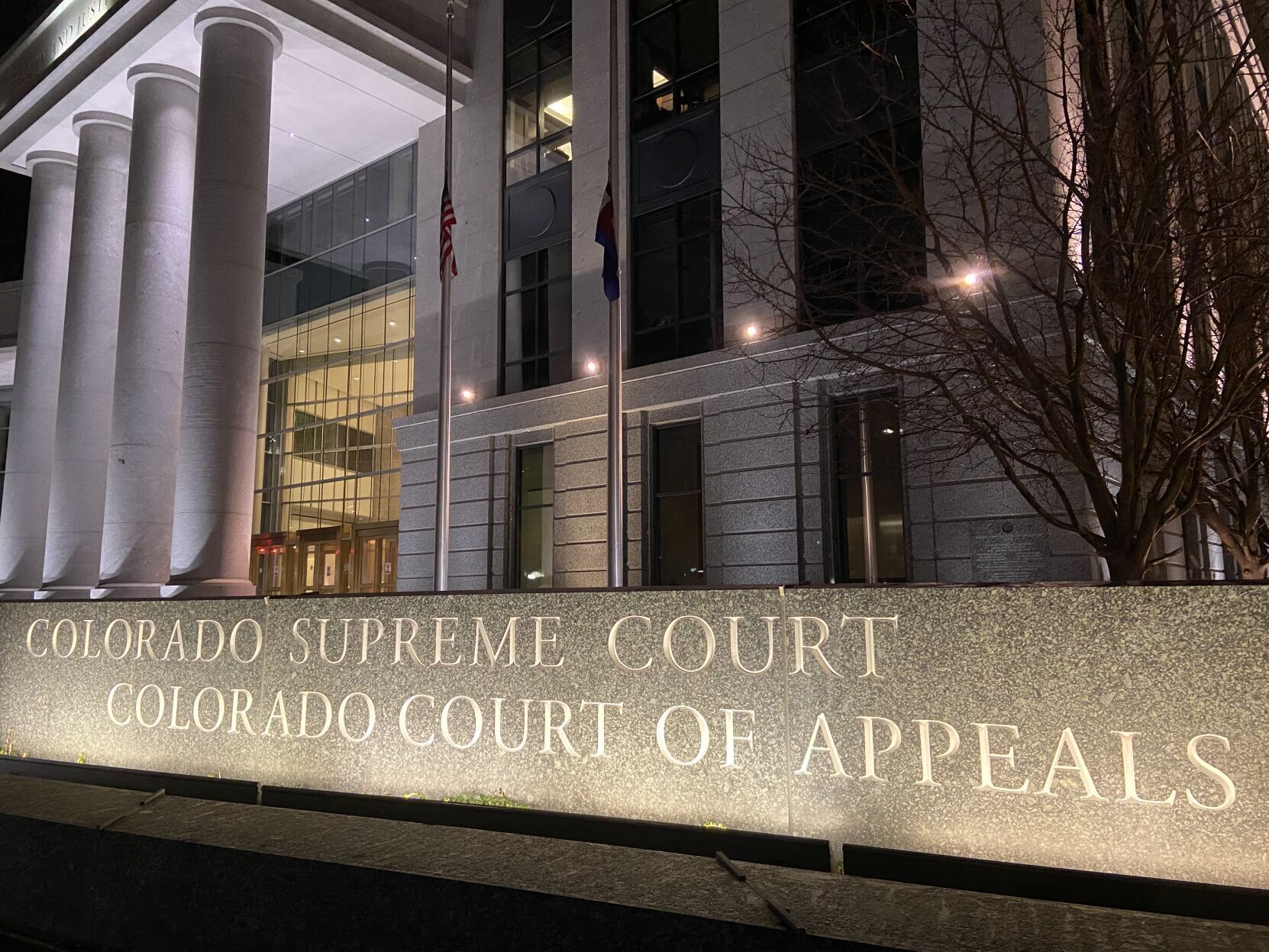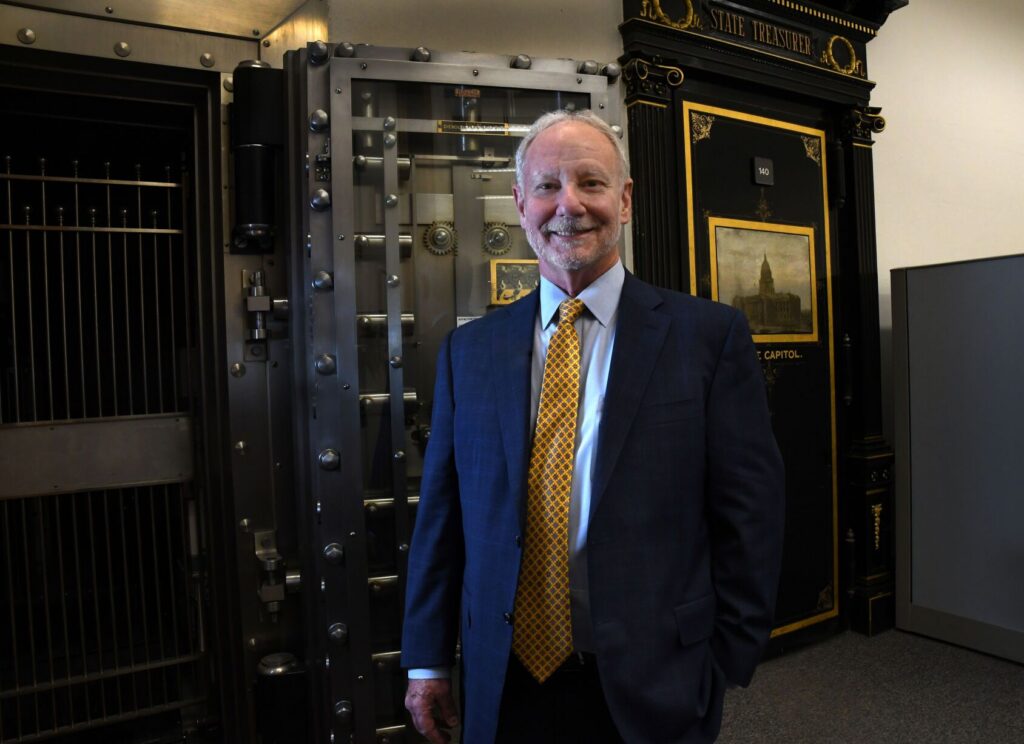Appeals court finds no error in dismissal of Black juror from El Paso County case

Colorado’s second-highest court has determined an El Paso County judge appropriately allowed prosecutors to dismiss a Black juror from a criminal trial for reasons other than his race.
The U.S. Supreme Court recognized in the 1986 decision of Batson v. Kentucky that juror dismissals, or strikes, motivated by a juror’s race are unconstitutional. Consequently, trial judges evaluate whether credible nonracial reasons exist whenever a defendant objects to prosecutors’ attempts to strike a juror of color, an objection known as a “Batson challenge.”
On Thursday, a three-judge panel for the Court of Appeals concluded nonracial reasons existed when El Paso County prosecutors removed a Black man named R.B. from the jury pool at the 2018 trial of Larry Paul James Martinez.
“We conclude that this record supports a determination that the prosecutor’s concerns that R.B. would be biased in favor of Martinez and had had a bad experience with law enforcement were facially race-neutral,” wrote Judge Christina F. Gomez in the July 21 opinion.
Martinez had challenged the strike of R.B. by arguing R.B.’s negative experiences with law enforcement that were of concern to the prosecution were necessarily linked to his race.
Martinez stood trial in August 2018 on charges that he sexually assaulted a child at A Mother’s Touch daycare center, which his ex-wife operated. A jury convicted him and Martinez received a sentence of 12 years to life.
Prior to jury selection, R.B. filled out a questionnaire and indicated he had a bad prior experience with police, describing it as “crooked.” He also noted he had personal experiences that would make it difficult for him to serve as a fair and impartial juror. In elaboration, R.B. wrote: “being black in El Paso” County.
Several jurors spoke up openly doubting their ability to be fair, given the nature of Martinez’s charges. Then-District Court Judge Deborah J. Grohs questioned R.B., who acknowledged it “will be hard for me not to be on his side a little bit” based on “what people said in this courtroom today.”
Grohs inquired about R.B.’s concern that other people in the jury pool were biased, to which R.B. responded he was “looking at him (Martinez) as innocent until proven guilty, for sure.” R.B. confirmed he was more concerned about the bias from others in the room, and might show Martinez “pity” as a result.
The prosecutor spoke to R.B. next, asking him whether he could be fair to any law enforcement personnel who testified in light of R.B.’s past negative experiences.
“Yes, sir,” R.B. affirmed. Martinez’s defense lawyer then followed-up with R.B., checking whether R.B.’s admission of partiality earlier was a reaction to the hostility some jurors expressed toward Martinez and whether R.B. could, in fact, hold the government to its burden of proof in the case.
“Yeah, that’s their job,” said R.B.
The prosecution subsequently moved to strike R.B. from the jury. Martinez’s lawyer raised a Batson challenge based on R.B.’s status as a Black man. The defense told Grohs R.B. had committed to the presumption of innocence for Martinez, and R.B. had answered the district attorney’s questions “appropriately.”
In justifying the strike of R.B., the unnamed prosecutor said there was no pattern of removing jurors of color, and that R.B. had admitted he would have “sympathy or pity” for Martinez.
“He also indicated that he’s had bad experiences with law enforcement in his questionnaire, specifically, regarding the mistreatment by law enforcement,” the prosecutor added.
Grohs agreed there was no race-based pattern among the juror strikes and R.B. indeed stated he would be on Martinez’s side “a little bit.”
“He said that what other people were saying in the room showed the bias, and he said that he would have pity on (Martinez) because of what he heard from what other people said this morning,” she concluded in denying the Batson challenge.
On appeal, Martinez disputed that R.B. was biased in his favor. He also claimed the prosecution had not offered a race-neutral reason because R.B.’s negative perceptions of law enforcement were “inextricably linked to being a Black male who had experienced discrimination by police officers.”
The Court of Appeals has previously raised red flags about prosecutors’ use of negative police experiences as nonracial justifications for striking a juror of color. In a 2019 decision in a case out of Denver, Judge Terry Fox observed a Hispanic juror’s views on the criminal justice system “were inextricably linked to being a Hispanic male who had experienced racial profiling.”
Again in a February 2021 appellate decision stemming from Arapahoe County, Judge Stephanie E. Dunn acknowledged a trial judge had “fairly observed” a juror’s adverse interactions with police may correlate to that juror’s race and, therefore, could be improper grounds for a strike.
Differential experiences with police based on race are a driving force for reforms to Batson challenges. The Colorado Supreme Court’s criminal rules committee recently debated a proposed judicial rule change — intended to curtail exclusions of people of color from juries — that could deem a juror’s distrust in law enforcement or belief that police engage in racial profiling an invalid reason for excusing them, without more.
In Martinez’s case, the Court of Appeals acknowledged that Batson challenges do not require proof of a pattern of striking jurors of color, but that the prosecution had nevertheless given at least one nonracial reason for dismissing R.B.: his admission it “will be hard” not to be slightly on Martinez’s side.
Although R.B. had responded, “Yeah, that’s their job,” when the defense asked him if he could hold the prosecution to its burden of proof, Gomez wrote that “it’s not clear from the transcript” whether R.B. had given a definitive answer on the subject.
Similarly, she did not believe it was clear R.B.’s negative experiences with police were linked to his race, even though he had written “being black in El Paso” County on his juror questionnaire.
“Absent something indicating that his bad experience with ‘(c)rooked’ law enforcement was in some way related to race, the bad experience statement appears race neutral,” Gomez added.
The case is People v. Martinez.













